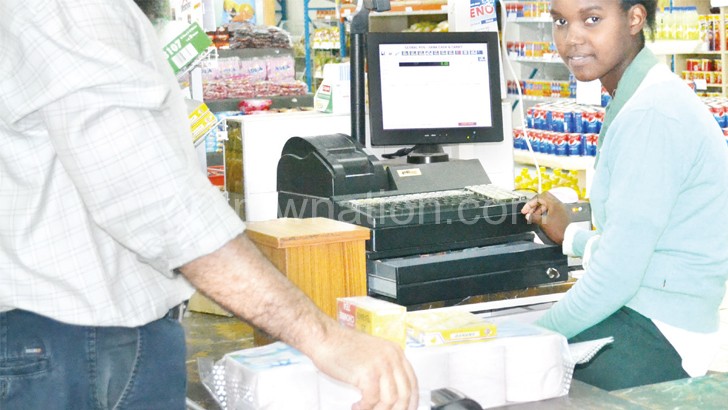Covid-19: Cost of living up
The Centre for Social Concern (CfSC) has warned that the impact of measures to contain the coronavirus will push up the cost of living for Malawians, especially in view of increased transport costs.
CfSC economic governance programme officer Bernard Mphepo, whose organisation conducts monthly surveys on cost of living, warned that prices for food and imported products were likely to soar following a 100 percent hike in bus fares effected on April 1 by some operators in reaction to the reduced carrying capacity.

He said in a normal situation, one is supposed to have a disposable income of K194 000 to feed a family of six in urban areas and K76 000 in rural areas.
But Mphepo said people will need more to keep going in the wake of coronavirus.
He said: “Covid-19 will be having an adverse impact on local people. Prices of imported commodities are likely to rise and that will automatically contribute to high cost of living.
“Government needs to put proper mechanisms in place to ensure that commodities are made available to people. On the other hand, if we are to compare the minimum wage, which some people are receiving, we find that we are far from what they are supposed to have.”
Meanwhile, Economics Association of Malawi acting president Kettie Nyasulu, University of Malawi economics professor Ben Kaluwa and Malawi Congress of Trade Union (MCTU) president Denis Kalekeni have urged government to move in swiftly to provide solutions to mitigate the impact of Covid-19 by cushioning low-income earners who are on a minimum wage of K35 000 per month.
Kalekeni said the hike in public transport cost would affect employees who commute between their homes and workplaces; hence, the need for government to intervene to cushion the employees.
He said MCTU has proposed some interventions to government, including expanding the zero-tax band for pay as you earn from K40 000 to K100 000 and a reduction in value added tax (VAT) from 16.5 percent to 10 percent to give people more disposable income.
Kaluwa, on the other hand, proposed that government should take a multi-sectoral approach in finding solutions on how to cushion people from Covid-19 impact. He observed that most sectors of the economy are affected.
Nyasulu highlighted that the most vulnerable people will be hit hard; hence, the need for government to implement some targeted policies to cushion them from the negative impact.
In an earlier interview, Minister of Finance, Economic Planning and Development Joseph Mwanamvekha said government was working on a plan to mitigate Covid-19 impact.
He said government was looking at the gross domestic product of the country and has analysed the impact on the national budget both on the revenue and expenditure.
Covid-19 has affected many African countries, including South Africa, which is on a 21-day national lockdown.
In Rwanda, President Paul Kagame passed the resolution to provide food to needy people while in Kenya President Uhuru Kenyatta cut his salary by 50 percent to boost allocations towards Covid-19 prevention.





